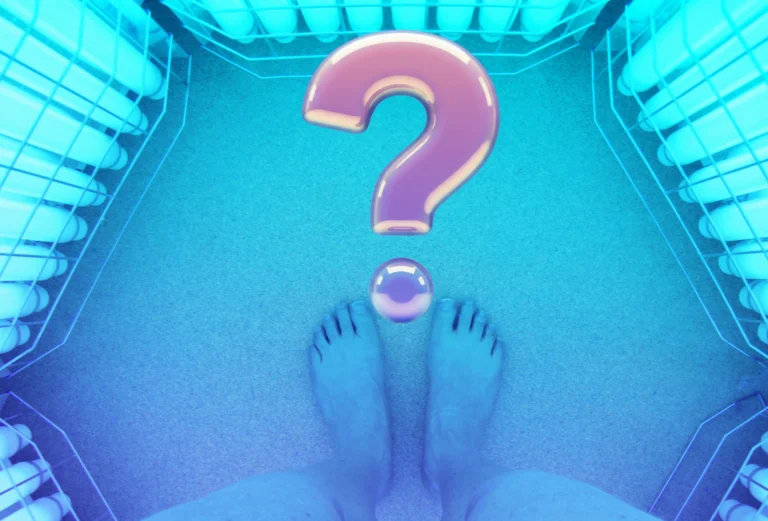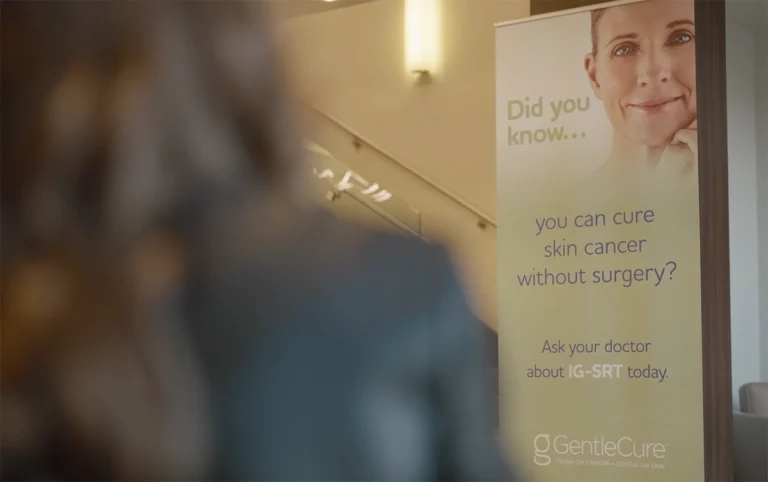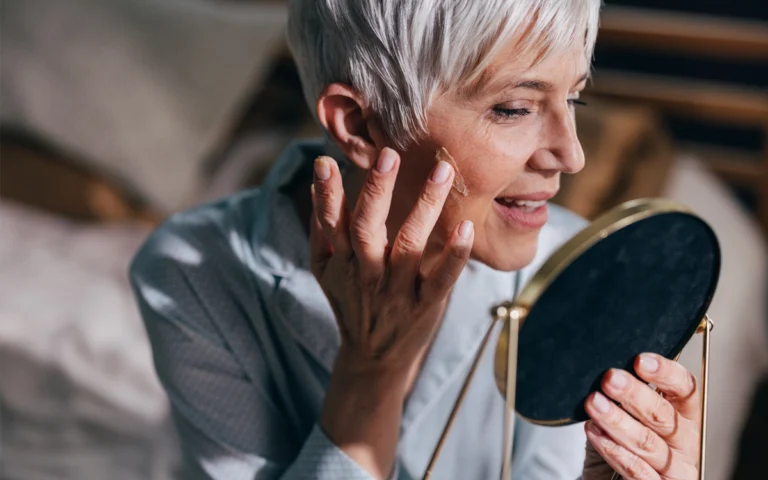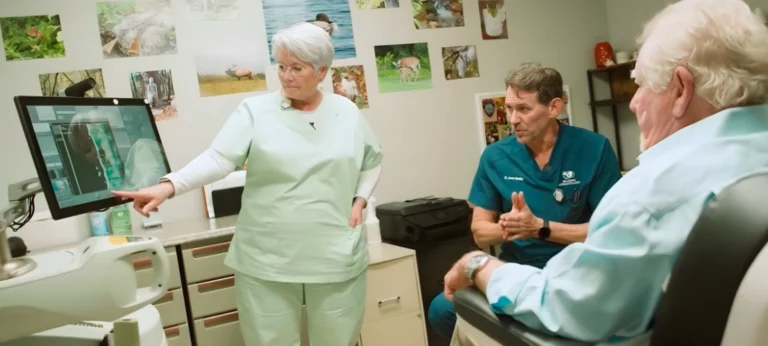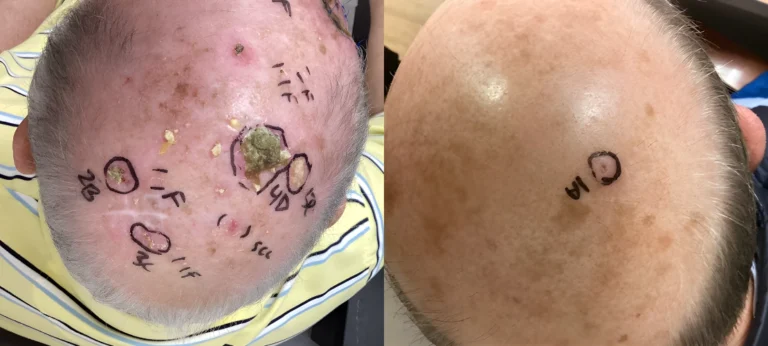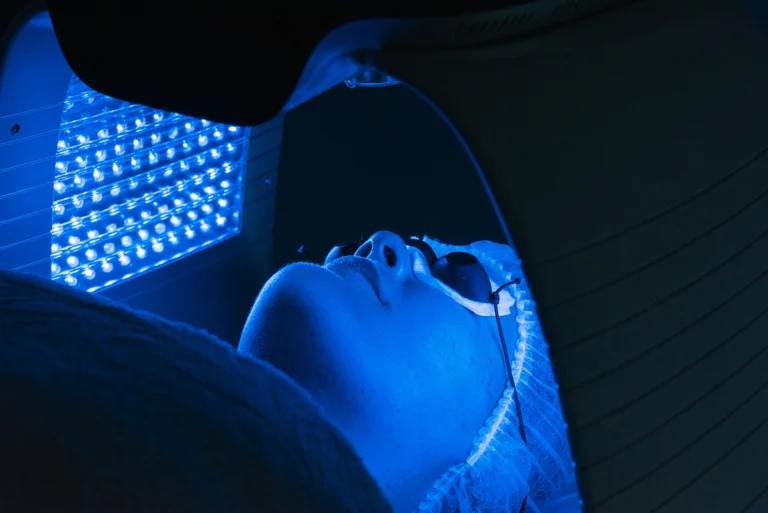
Depending on what kind of non-melanoma skin cancer you have and where it appears on the body, skin cancer looks like a variety of sores, lesions, or troublesome raised areas. Early detection is the best form of defense against skin cancer, so in addition to receiving annual skin screenings, use this library of skin cancer pictures to compare against your symptoms.
By observing real-life images of skin cancer, common lesions and early warning signs, you can develop a better understanding of what abnormal skin changes may look like.
What Does Skin Cancer Look Like on the Face?
Skin cancer is often found on the face due to its overexposure to sunlight year round.
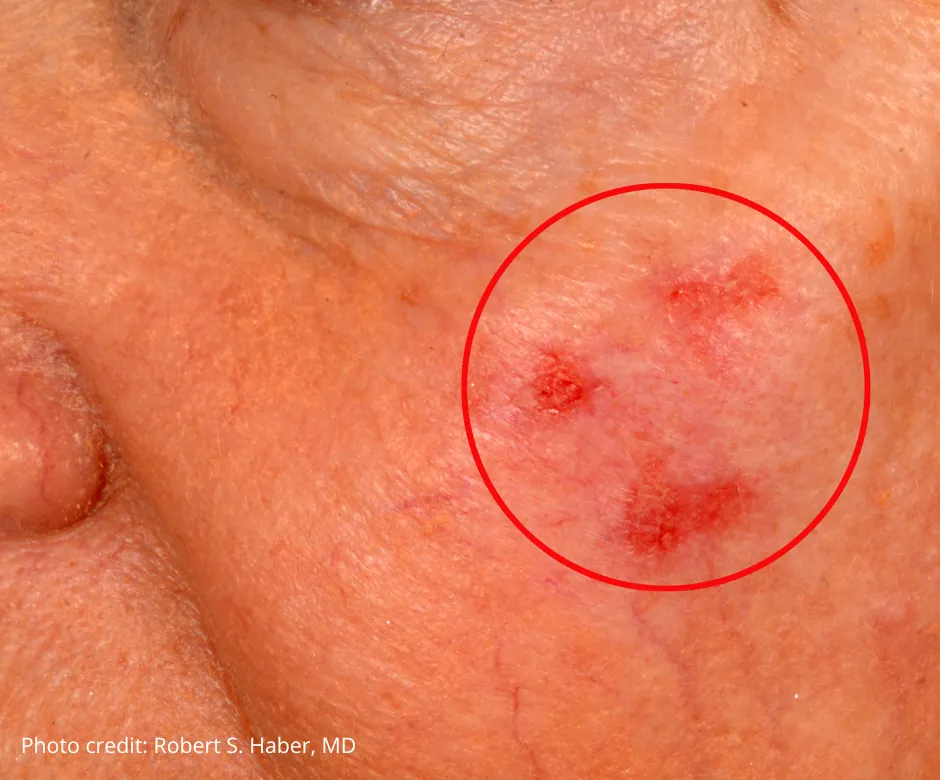
On facial areas, skin cancer often appears as small, pearly bumps, rough patches, or sores that don’t heal. These symptoms tend to develop subtly, which is why visual comparisons—such as the skin cancer face picture above—can help you notice changes more quickly.
What Does Skin Cancer Look Like on the Scalp?
Without proper protection, your scalp is very vulnerable to the sun’s harmful rays.
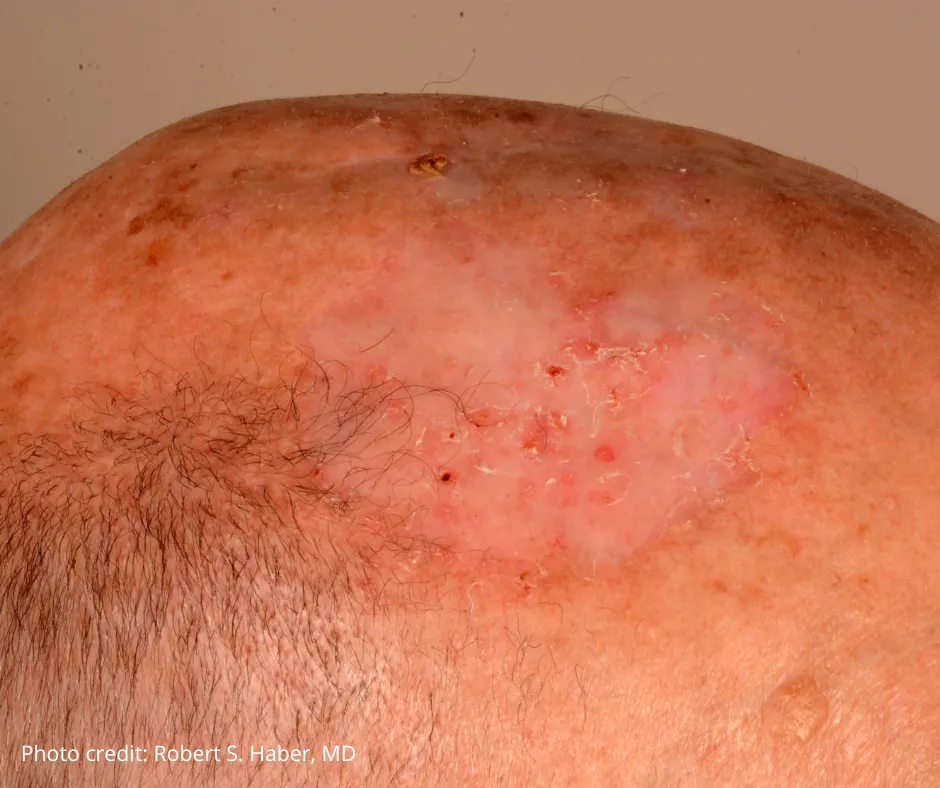
Lesions here can resemble scaly, reddish patches or nodules, especially in areas with thinning hair. Reviewing skin cancer on scalp images may help individuals identify when a bump is worth getting examined.
What Does Skin Cancer Look Like on the Ear?
Ears can be very sensitive to sunlight and are a frequent location for skin cancer to appear.
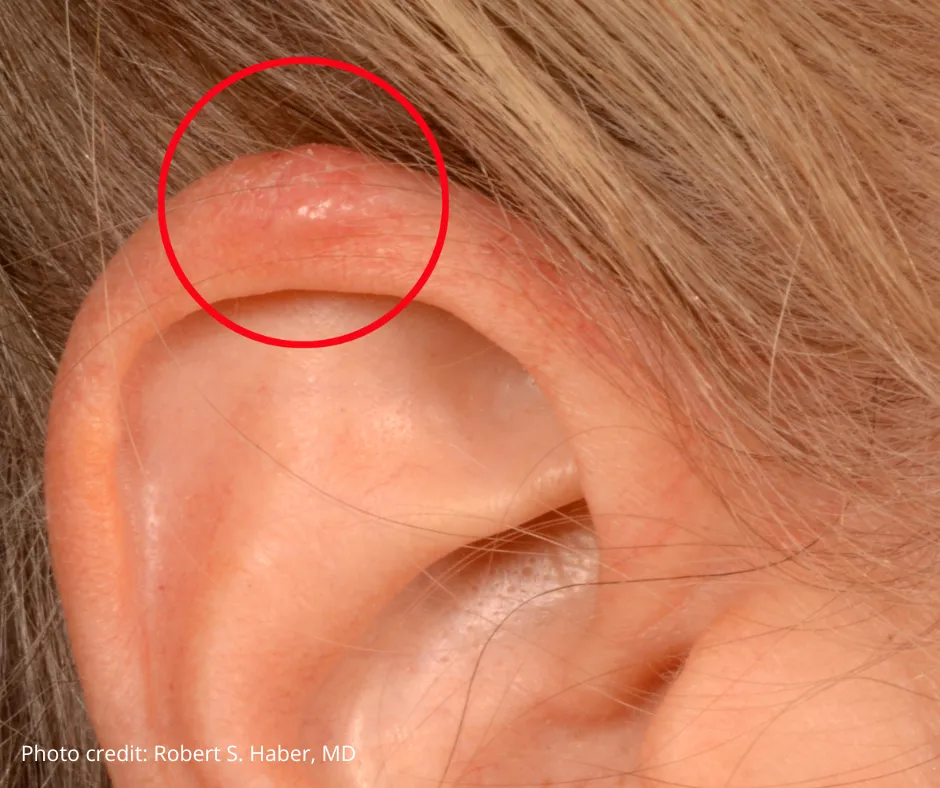
The edges of the ear may develop crusty or raised lesions. These spots are often overlooked but can be better recognized when compared to images showing skin cancer.
What Does Skin Cancer Look Like on the Eyelids?
Eyelids are often overlooked when it comes to sun protection, putting them at risk.
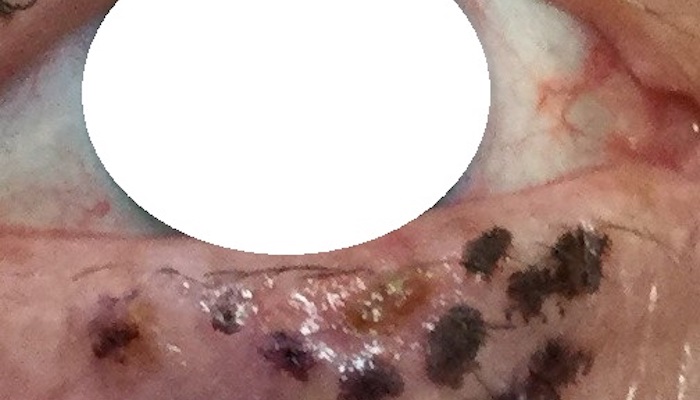
Skin cancer on the eyelid may appear as irregular, darkly pigmented lesions or crusty, ulcerated patches—like those shown here affecting the lower lid. These growths may initially resemble benign skin issues but tend to persist, change, or bleed over time. Viewing actual photos like this one can help you understand what warrants a closer medical look.
What Does Skin Cancer Look Like on the Arms?
Your arms can be susceptible to sunlight overexposure without sunscreen or protective clothing.
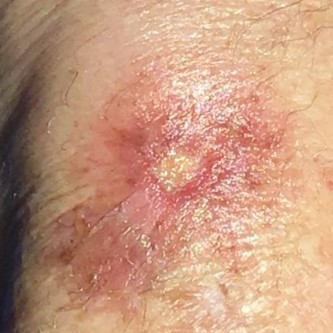
On the arms, skin cancer may look like rough patches, bleeding sores, or flesh-colored bumps. Reviewing pictures of cancerous lesions on arms may guide your awareness of subtle yet concerning changes.
What Does Skin Cancer Look Like on the Nose?
Skin cancer on the nose is fairly common and can present as a variety of lumps or sores.
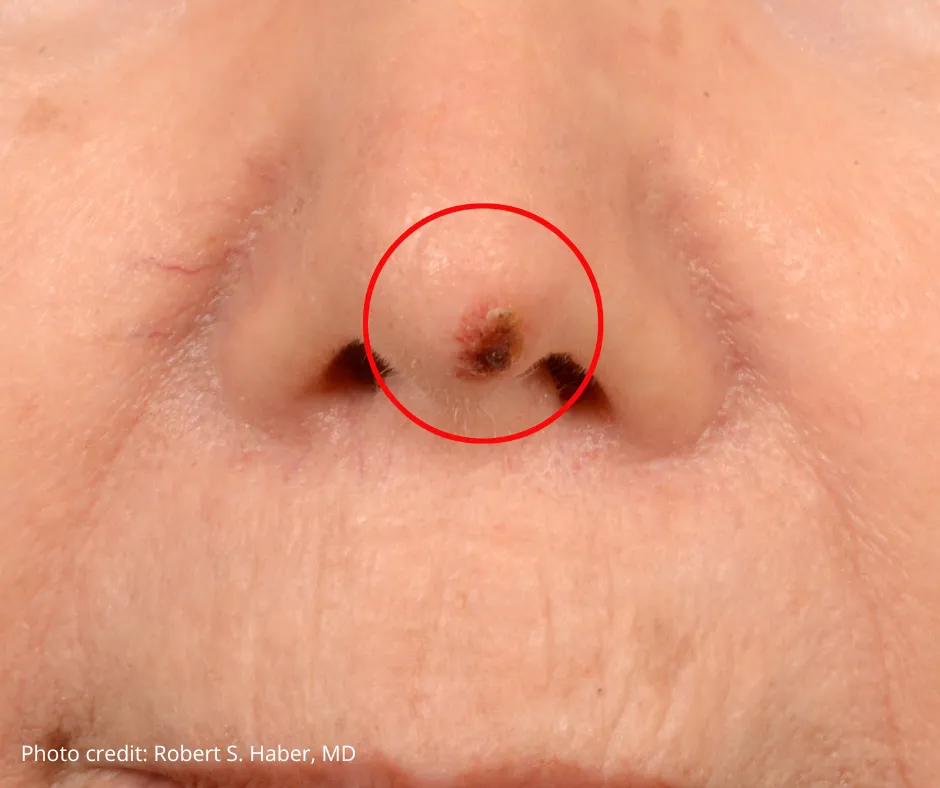
This area often develops basal cell carcinomas, which may appear as shiny bumps or persistent scabs. Skin cancer on the nose can be better understood by viewing comparative images that show how these lesions typically present.
What Does Skin Cancer Look Like on the Lips?
Your lips are made up of some of the thinnest skin on your face, elevating their cancer risk.
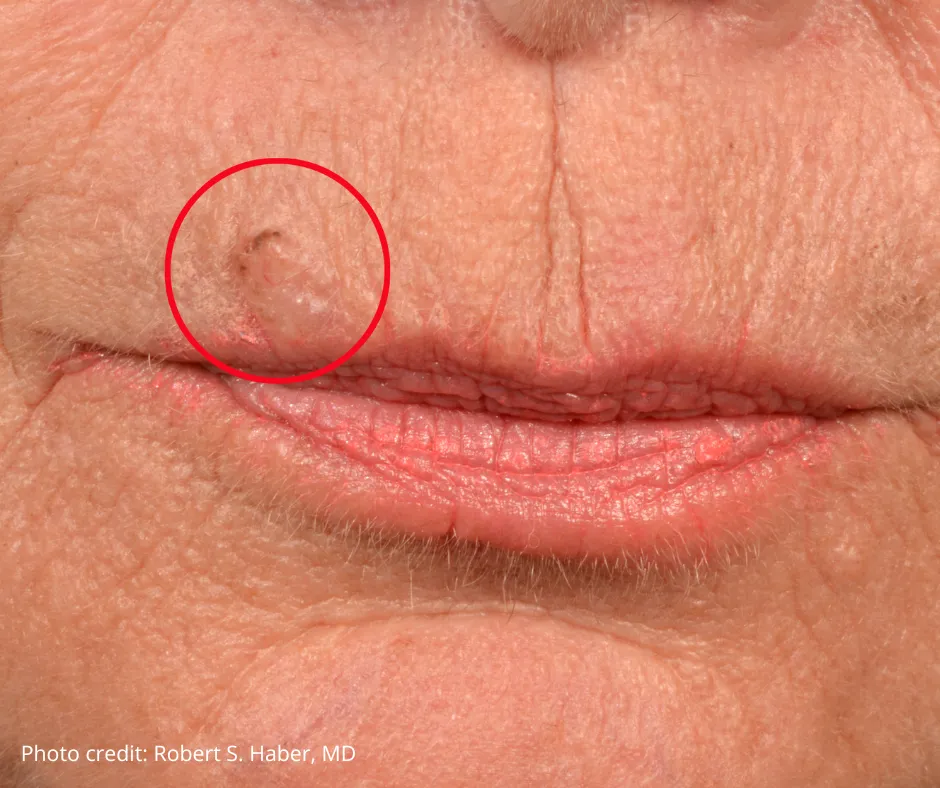
Skin cancer on the lips can begin as flat, scaly patches or persistent sores. Looking at skin cancer on lips pictures can help distinguish ordinary dryness from potentially cancerous changes.
What Does Skin Cancer Look Like on the Ankles?
When ankles aren’t frequently covered by clothing they see more sun and can develop cancer.
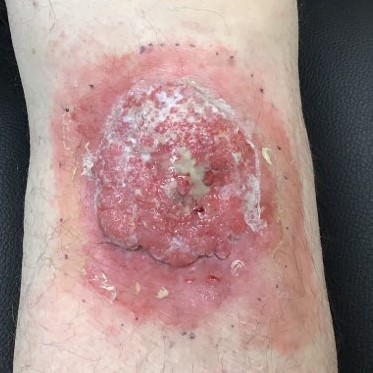
Skin cancer on the ankle can present as a large, inflamed patch that may crust, ooze, or become raised—similar to the lesion pictured here. Unlike a bug bite or rash, these spots typically worsen over time and may develop a rough texture or open sore. Prompt medical evaluation is important, especially when you notice persistent changes in the skin’s surface or color.
Talk to Your Doctor About What Skin Cancer Looks Like
The best skin assessment will come from your doctor, so if you’re worried about a growth on your skin, schedule an appointment as soon as possible. GentleCure is committed to helping non-melanoma skin cancer patients get the treatment they need, so to learn more about IG-SRT, the non-invasive treatment, call 855-936-4411 to connect with a Skin Cancer Information Specialist today.
While images and comparisons are helpful, no photo can replace a proper diagnosis. If you’re uncertain about a mole or lesion, especially after seeing examples of skin cancer symptoms, consult your healthcare provider promptly.

